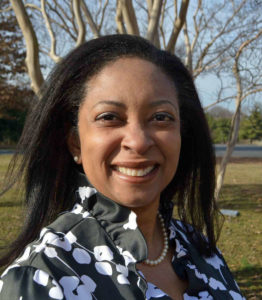 Ed Talk is a biweekly opinion column. The views expressed are solely the author’s.
Ed Talk is a biweekly opinion column. The views expressed are solely the author’s.
May 17 marks the 67th anniversary of Brown v. Board of Education (1954), the landmark Supreme Court case that overturned the doctrine “separate but equal,” which became law in 1896 when Plessy v. Ferguson upheld the constitutionality of racial segregation laws for public facilities, as long as the segregated facilities were “equal” in quality.
In Brown, the Court unanimously held that “separate educational facilities are inherently unequal,” and violated the equal-protection clause of the 14th Amendment. However, the Court declined to specify remedies for school segregation, asking instead for further argument.
The following year, in Brown v. Board of Education II, the Court remanded future desegregation cases to lower federal courts and directed district courts and school boards to desegregate schools “with all deliberate speed.” Although Brown has been the law of the land for much longer than Plessy was, little has changed in our schools vis-à-vis segregation and inequality.
To commemorate the 67th anniversary of Brown, the Department of Education, Office of Civil Rights and the Department of Justice, Civil Rights Division considered it paramount to host a joint symposium, Brown 67 Years Later: Examining Disparities in School Discipline and the Pursuit of Safe and Inclusive Schools, to highlight strategies for addressing racial and other disparities in the administration of school discipline.
Three panels composed of legal and education experts discussed the impact of exclusionary school discipline policies and practices such as suspensions and school-based arrests on students of color, students with disabilities, and LGBTQI+ students. They shared strategies for addressing harmful and discriminatory school discipline practices and creating more positive school climates.
Two main strategies emerged for achieving this; removing School Resource Officers (SROs), and implementing restorative practices, neither of which APS has managed to accomplish yet as neighboring districts have. As a result, Black students are suffering irreparable harm. The school board has convened a community-based SRO Work Group to consider and recommend in June whether to keep SROs.
APS’s 2019-2020 suspension data in a partial pandemic year shows that Black students accounted for 27% of all out-of-school suspensions despite comprising 11% of APS’s population. By contrast, white students accounted for 16% of suspensions despite comprising 41% of APS’s population.
The 2018-2019 suspension data, more consistent with the 10-year average, shows that Black students accounted for 34% of all out-of-school suspensions despite comprising 10% of APS’s population. By contrast, white students accounted for 18% of suspensions despite comprising 44% of APS’s population. The disparities by school are even more stark.
Not surprisingly, the word “restorative” does not appear anywhere in APS’s discipline policy (J-7.4) or its accompanying policy implementation plan (PIP) (J-7.4 PIP-1), nor does it appear in the Draft Student Rights & Responsibilities: Code of Conduct Handbook. When these documents were circulated for revision and amendment, stakeholder groups deemed them retributive in tone and advised that restorative practices be added. The discipline policy is scheduled for “action” by the school board in August. Whether the school board will adopt the recommendations remains to be determined.
Notwithstanding Restorative Arlington’s Strategic Plan, there is no-one in the county with expertise in school-based implementation. While APS blithely promised a one-year pilot, that promise remains unfulfilled as APS disregards the only operational restorative practices program for school-aged youth in Arlington — Promoting Empathy through Equitable Resolution (PEER) — operated by a community-based organization.
APS anticipates that returning students will have experienced trauma during the pandemic. Yet it lacks the urgency to implement restorative practices despite emphasizing social and emotional learning (SEL). However, SEL is diluted without restorative practices as both work in tandem.
In stark contrast to APS, other public schools are light years ahead in restorative practices. For example, Denver Public Schools first piloted restorative practices in 2006 and formally amended its JK-R- Student Conduct and Discipline Procedures in 2008 to add restorative practices. In our neighboring jurisdictions, restorative practices are well underway: DCPS has adopted and published a comprehensive Restorative Schools Implementation Guide. ACPS, FCPS, LCPS, and PWCS have also adopted restorative practices. FCCPS also is moving toward restorative practices following the City’s adoption of PEER.
Paradoxically, Administrative Services, the department presiding over the discipline disparities, is also the office responsible for implementing restorative practices, which it appears to be slow-walking. This is the fox guarding the henhouse. For restorative practices to succeed–if we ever get it–a climate and culture shift is required in APS from one that is currently retributive to one that is restorative in the 5 Rs: Relationships, Responsibility, Respect, Repair, and Reintegration.
APS was the first school district to desegregate Virginia after Brown. Let it not be the last to implement restorative practices. It is due time for APS to act with all deliberate speed to implement restorative practices and eradicate discipline disparities.
Symone Walker is an Arlington Public Schools parent and federal attorney. She is an At Large Executive Committee Member of the Arlington NAACP and Co-Chair of the Education Committee. She serves on the Arlington Special Education Advisory Committee, Superintendent’s Advisory Committee for Equity and Excellence, School Resource Officer Working Group, Destination 2027 Task Force, and the Commonwealth Attorney’s Community Advisory Board. She is a former candidate for the Arlington school board.

